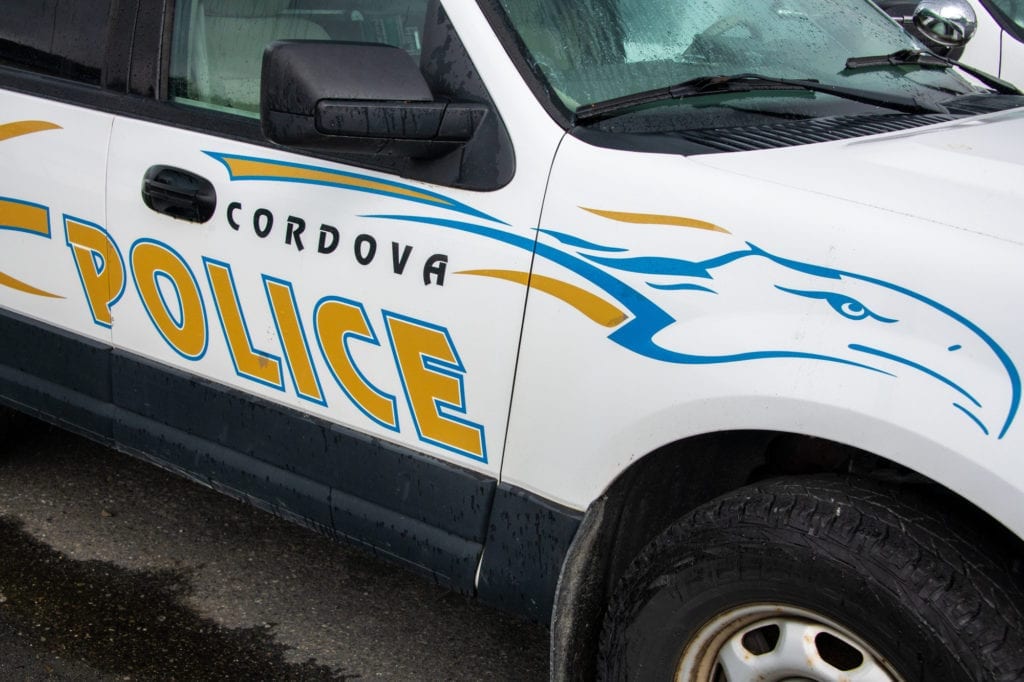
City officials have asked the public to share their views on policing in Cordova. An online questionnaire issued by the city Aug. 7 had garnered 145 responses by Wednesday, Aug. 12, officials said. The five-question survey asks respondents to rate their satisfaction with the Cordova Police Department and to explain what methods and priorities they would like police to follow.
Survey responses will be used to inform upcoming public discussions with Mayor Clay Koplin and interim Police Chief Nate Taylor. The survey will close Aug. 21, and is available in English, Spanish and Tagalog.
Although officials have yet to evaluate responses to the questionnaire, a vigorous rate of response shows that policing is an important issue to the community, City Manager Helen Howarth said. The city has periodically considered downsizing the Cordova Police Department, and the question of whether Cordova requires 24/7 policing was raised during the planning of the 2020 budget. The growth of the Black Lives Matter movement, as well as the June 30 retirement of Mike Hicks as police chief, make now an opportune moment to hold a public discussion on the role of the police.
“This is a great opportunity to have a conversation around, ‘What do we want, what do we need, and how do we shape our police to respond to that?’” Howarth said. “I don’t want anyone to believe we’re attacking our police department — that’s not it at all… But I hope the community will feel comfortable and freely volunteer their thinking around policing.”
Cordova’s police have also been required to undertake new roles in response to the novel coronavirus pandemic, providing an additional prompt to rethink their role in the community, Mayor Clay Koplin said. Much of Cordova’s success in controlling the spread of the virus has been due to Hicks’s strong leadership and ability to strike a balance between personal rights and public protection, Koplin said. Nonetheless, recruiting officers and limiting turnover has proved difficult for the department.
“I hope that we can maintain the same high quality of service from our police force that we’ve had in the past,” Koplin said. “They’ve got some real challenges … It’s getting very hard to attract and retain policemen and, unfortunately, there’s a lot of public ill will directed toward police departments. That’s unfortunate.”
Megan Butler, a leading organizer of Cordova’s Black Lives Matter protest marches, was disappointed that the city had apparently not consulted march organizers about the new initiative. Butler hopes to see the creation of an independent oversight committee to review and assess police department employees, and to advocate for people with complaints against the department. However, such measures are unlikely, in themselves, to fully resolve problems with policing, she said.
“I’ve lived in a city [Durham, N.C.] with committees such as the one I suggested, and police brutality and misconduct still persists,” Butler said. “I’m skeptical about how much small reforms and fixes like that can accomplish. This is why I really believe in the power of community organizing and activism to expand our political imagination about what is possible, and I think in the three months of protests we’ve seen the national imagination expanding and conversations about moving beyond policing have become a lot more common. I think this is the direction conversations around police reform need to go in, but a lot more work needs to be done to just have those conversations here in Cordova.”





